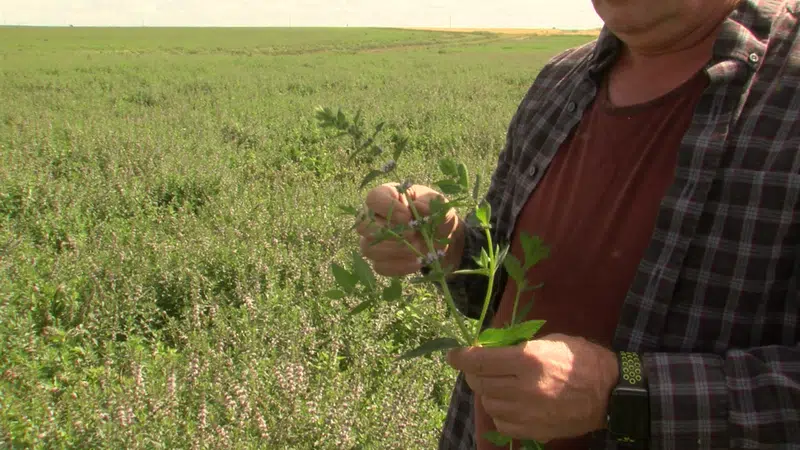
The sweet smell of success
Bow Island, AB – You may have never heard of Thacker Specialty Crops located just outside Bow Island but you’ve likely tasted the product it produces.
The farm is one of the country’s largest producers of spearmint and supplies industry giants such as Colgate and Wrigley’s for use in toothpaste and chewing gum.
And the crop is one of the most fragrant with the sweet smell of the essential oil-laden spearmint leaves wafting through the air, hitting the nose long before you see the fields of the perennial plant with its small purple blooms.
